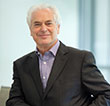We are experiencing a loss of global confidence due to the pandemic.
Ian Robertson, Harris Eyre and William Hynes outline a new brain-based approach to fostering confidence can help us address the global brain health emergency.
Economic crises like that produced by the pandemic can undermine the self-belief of millions of individual people and vice versa. For example, studies have shown that 18- to 25-year-olds who live through an economic recession believe less strongly that they can get ahead through hard work. This is starkly illustrated during the economic turmoil to date caused by the Covid-19 pandemic. In a UK study of 2000 16-25 year olds, 41% said that their future goals now seemed ‘impossible to achieve’ and 38% that they now felt they would ‘never succeed in life’.
Such a dramatic fall in confidence in almost half a generation is likely to have happened across many countries, and this will reverberate for decades in the global social, economic and political fabric long after the pandemic has passed. Individual confidence is central to national development and so the economic effects will be lasting.
Between 2000 and 2014, across 13 European Union countries, including Britain, Germany, France, and Spain, the confidence of individual consumers and company executives strongly predicted the unemployment rate. The relationship went in one direction: the confidence of individual people predicted eventual unemployment levels in each country.
In business, confident people are more likely to be entrepreneurial. Confident inventors with patents more readily find a company to commercialize them. And companies who manage to make their employees feel more confident, boost their productivity.
The Covid-19 pandemic affects confidence in multiple ways: social and physical distancing cause isolation and reduced social support; the crisis accelerates digitalisation, which generates many benefits but also threatens specific types of jobs and livelihoods; fragmented and inconsistent policy approaches exacerbates chronic stress and fear. Anxiety sabotages confidence. In addition, the virus appears to cause direct damage to some people’s brains, causing emotional disturbances and ‘brain fog’, among other symptoms. Health systems are struggling to keep up with overwhelming mental-healthcare demands.
Economic challenges have meant widespread job losses. The impact of the resulting loss of confidence has likely caused trillions of dollars of productivity loss. Unfortunately, our current economic systems are not well equipped to deal with these issues. The Organization for Economic Co-operation and Development (OECD) recently noted, “With the COVID-19 pandemic continuing to threaten jobs, businesses and the health and well-being of millions amid exceptional uncertainty, building confidence will be crucial to ensure that economies recover and adapt”. But the question is, how?
Confidence can be broken down into two elements: can happen, the belief that an action will produce an outcomeand can-do, the belief that you can carry out the action. Both are needed for confidence to have its full energising effects. Economic and social turmoil sabotage both types of belief. People don’t channel their energies or finances in an uncertain future, a ‘can’t happen’ belief that acts as a self-fulfilling prophecy.
It is the effects of turmoil on the can-do belief that is perhaps the most pernicious in the long term for societies and economies. This is particularly the case in the context of accelerating technological, environmental and social change, and of which the Covid-19 turmoil offers a foretaste.
Personal confidence in the ability to take action – from learning a new skill to mastering emotional difficulties – will be one of the most crucial attributes of people facing up to exponentially accelerating challenges. It is this confidence that is diminished by economic reversals and which in turn perpetuates them. Personal confidence can be eroded by extreme inequalities and racial, age or gender stereotypes. Anxiety and low mood are also corrosive for confidence.
But there are also antidotes. Collective confidence exists as a supra-individual phenomenon whereby people believe that the group can-do, be it team, organisation, community or country. Collective confidence can inspire individual confidence and therefore offers opportunities to policymakers.
In uncertain times, with the brain health toll mounting, how can people be more confident? Clearly traditional approaches to address the global economic and psychological misery are not working and will not work. As we argue in the latest edition of the RSA Journal, an entirely new approach is needed. Enter Brain Capital, a new model for economic and policy thinking.
Brain Capital is a form of capital relevant to a complex, interconnected and fragile global economy, which puts a premium on brain skills and health. Brain health is essential to ensure that people have the brain skills to flourish in the modern economy. Brain skills include self-control, emotional intelligence, creativity, compassion, altruism, systems thinking, collective intelligence and cognitive flexibility. Brain health and brain skills are critical for resilience. Brain Capital puts value on individual and collective confidence. We argue that without Brain Capital we cannot pursue a confidence-building policy agenda.
Unfortunately, despite the critical role these skills play, we do not know enough about the impact of these brain health disorders on our workplaces, communities, economies and societies. How can we address this and effectively provide a supportive policy environment, invest in solutions and track outcomes? Think Brain Capital.
We recently outlined a Brain Capital Grand Strategy to provide a framework to explore policy drivers in-all-sectors, to consider traditional and non-traditional approaches to investing, and novel approaches to tracking (for example, a Brain Capital Index).
Brain Capital needs to be integral to a new narrative of growth and progress, which puts people at the centre of our economic system: their wellbeing, their interaction with others and their psychological resilience to shocks.
Covid-19 will not be the last planetary emergency, further pandemics, natural and man-made disasters are predicted in the future with increasing frequency and intensity. So we need fundamental reform to bolster our long-term confidence and resilience as individuals and as a society.
Ian H. Robertson PhD, Emeritus Professor of Psychology, Co-Director Global Brain Health Institute, Trinity College Dublin, T Boone Pickens Distinguished Scientist, Center for BrainHealth, UT Dallas
Harris A. Eyre MD PhD, Co-Founder of the PRODEO Institute, Adjunct Associate Professor, Institute for Mental and Physical Health and Clinical Translation (IMPACT), Deakin University.
William Hynes DPhil, Senior Advisor to the Secretary General and the Head of the New Approaches to Economic Challenges (NAEC) Unit, OECD
Related articles
-
How words shape our future
Blog
Adanna Shallowe
As we struggle to live with the prolonged uncertainty of this moment, the power of storytelling and narrative is even more critical.
-
An economy for all?
Blog
Asheem Singh Alexa Clay Riley Thorold
Is economic growth always good? It's time to listen to communities.
-
Empowering communities through Intensive Engagement
Comment
Richard James FRSA
As the Covid-19 pandemic and ensuing economic crises continue, empowering communities will be more important than ever, argues Richard James FRSA.






Be the first to write a comment
Comments
Please login to post a comment or reply
Don't have an account? Click here to register.